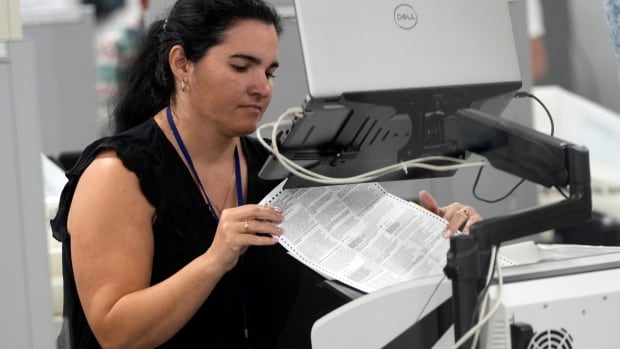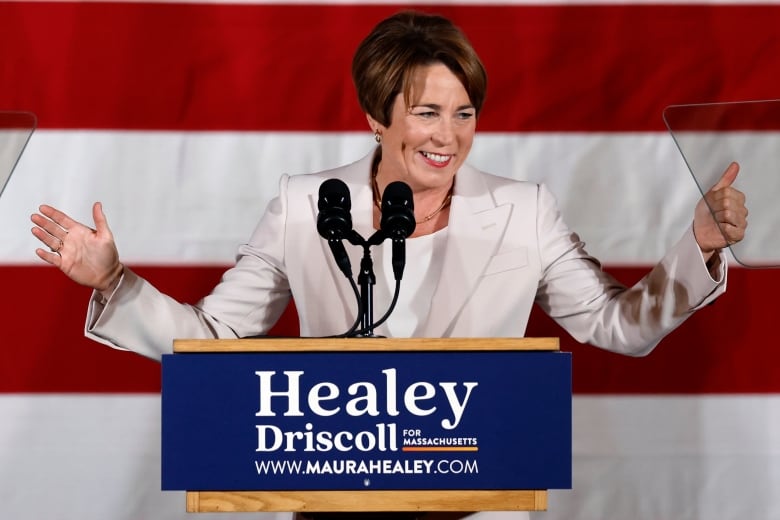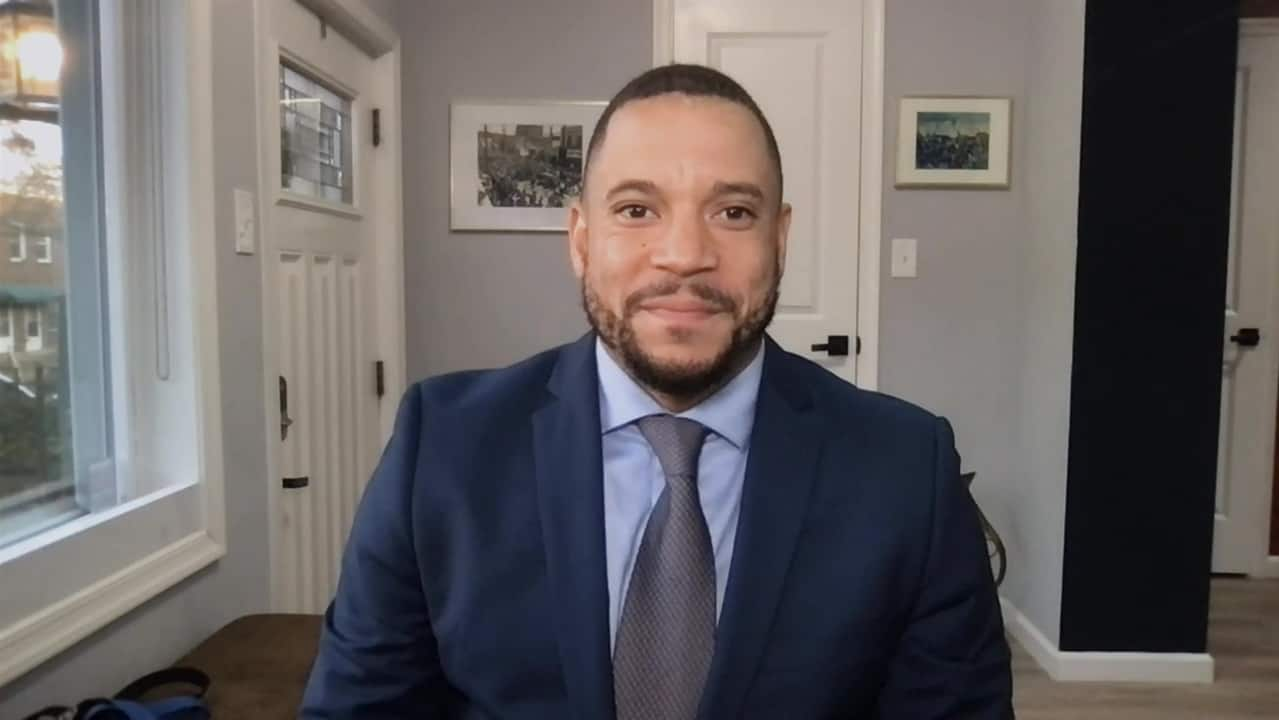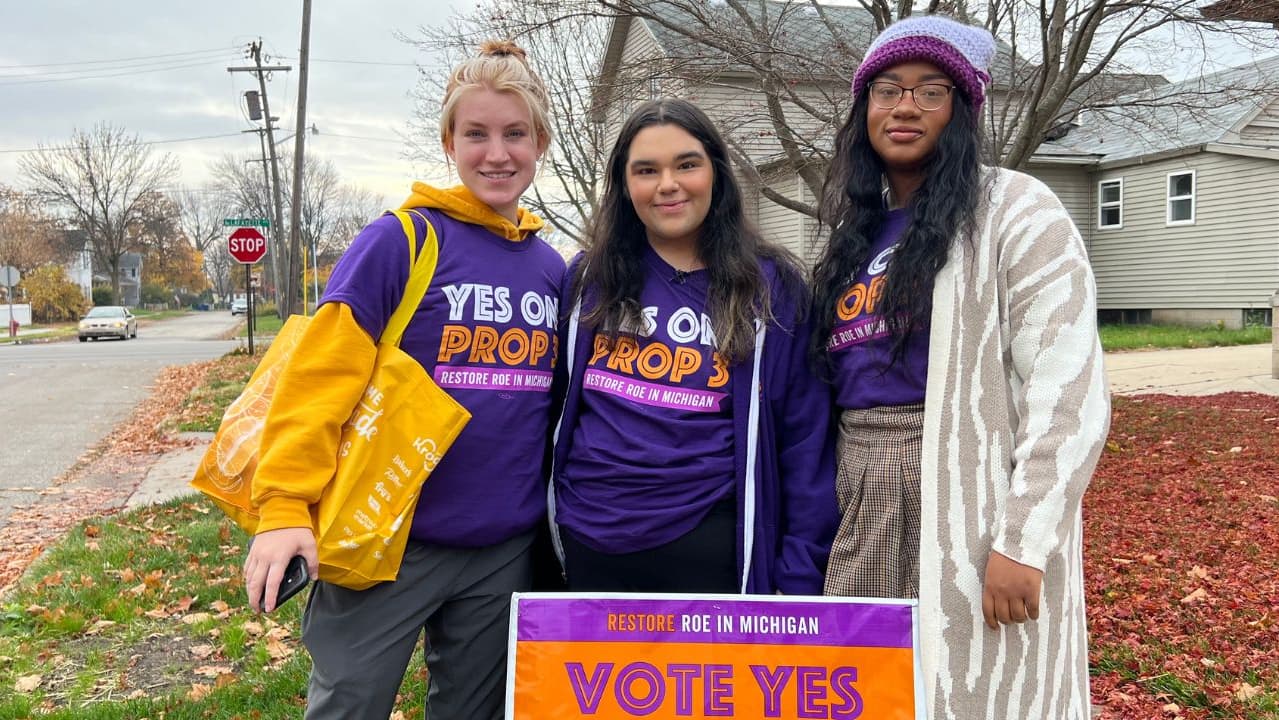
Control of the U.S. Congress and the future of President Joe Biden’s agenda were at stake in Tuesday’s midterm elections as voters decided races for the House and Senate along with dozens of governorships and key election posts.
In Florida, a state that was once a battleground but has become increasingly Republican, Gov. Ron DeSantis defeated Democrat Charlie Crist. Former president Donald Trump said he personally voted for DeSantis, who won his second term, despite him being viewed as a potential leading Republican primary alternative to Trump should the governor jump into the 2024 White House race, as is widely expected.
Florida Sen. Marco Rubio also won re-election, fending off a challenge from Democrat Val Demings and further illustrating the state’s rightward shift.
Despite their liberal histories, states like Massachusetts, Maryland and Illinois have elected moderate Republican governors in the past. But the Republicans this year appeared to be too conservative in these states, handing Democrats easy victories in a year that could otherwise prove difficult for the party.
Massachusetts and Maryland also saw historic firsts: Democrat Maura Healey became the first woman elected as Massachusetts governor, and the first openly lesbian governor of any state, and Democrat Wes Moore became the first Black governor of Maryland.

Both Democrats and Republicans saw opportunity in the other party’s strongholds but came up short. In the Colorado Senate race, Democratic incumbent Michael Bennet defeated Republican Joe O’Dea, who was viewed as a formidable challenger in the liberal state due to his support for abortion rights.
In the Oklahoma governor’s race, Republican Kevin Stitt won re-election despite facing an unusually stiff challenge after feuding with Republican legislators and Oklahoma-based Native American tribes.
In Georgia, Democratic Sen. Raphael Warnock and Republican challenger Herschel Walker were vying for a seat that could determine control of the Senate. Republican Gov. Brian Kemp and Democrat Stacey Abrams were meeting for a rematch of their marquee 2018 campaign. The candidates in that state must win at least 50 per cent of the vote to avoid a December runoff.
Meanwhile, in Virginia, Democratic Reps. Abigail Spanberger and Elaine Luria were fending off spirited Republican opponents. The results there could serve as early signals of where the U.S. House majority is heading as Republicans hope to reclaim suburban districts that shifted to Democrats during Donald Trump’s tumultuous presidency.
Republican Sarah Huckabee Sanders, who served as White House press secretary from 2017 to 2019 in the Trump administration, won election for governor in Arkansas.
And amid Republican gains in the U.S. House races in Florida, Democrat Maxwell Alejandro Frost became the first member of Generation Z to win a seat in Congress.
The outcome of races for House and Senate will determine the future of President Joe Biden’s agenda and serve as a referendum on his administration as the nation reels from record-high inflation and concerns over the direction of the country. Republican control of the House would likely trigger a round of investigations into Biden and his family, while a Republican Senate takeover would hobble Biden’s ability to make judicial appointments.

Historic headwinds
Democrats were facing historic headwinds. The party in power almost always suffers losses in the president’s first midterm elections, but Democrats had been hoping that anger from the Supreme Court’s decision to gut abortion rights might energize their voters to buck historical trends.
Even Biden, who planned to watch the evening’s election returns at the White House, said late Monday night that he thought his party would keep the Senate but “the House is tougher.” Asked how that would make governing, his assessment was stark: “More difficult.”
Americans voted for the most part without major problems Tuesday after two years of false claims and conspiracy theories about how ballots are cast and counted.
No widespread problems with ballots, long lines or voter intimidation were reported throughout the voting day, though there were hiccups in some places, which is typical on any election day.
Many Americans are voting in midterm elections with economic concerns top of mind, but millions of others see democracy under threat, especially from candidates who don’t accept the outcome of the last presidential election, says Ravi Perry, professor of political science at Howard University.
Isolated issues
One voting hitch garnered outsized attention Tuesday. Vote tabulators malfunctioned in 20 per cent of polling places in Arizona’s most populous county that includes Phoenix.
While election officials assured the public that every vote in Maricopa County would be counted, the issue prompted an outcry from Republicans in a state where elections for governor and U.S. Senate are expected to be close and where skepticism of election systems has run deep within the Republican Party since 2020.
In Michigan, voters in the midterm elections will be deciding whether to enshrine abortion rights in the state constitution. It’s one of several states where abortion rights will literally be on the ballot. On both sides of the issue, voters say lives are at risk.
Elsewhere, some voting sites in North Carolina were delayed in opening because workers showed up late, and officials extended voting hours there. And in one Pennsylvania county, polling places scrambled to replenish low supplies of paper ballots.
Election experts said the type and number of disruptions encountered by voters were not unusual.
Election denials a campaign theme
In the first national election since the Jan. 6 insurrection on the U.S. Capitol, the nation’s democratic future is in question. Some candidates who participated in or were in the vicinity of the deadly attack are poised to win elected office on Tuesday, including House seats.
A number of Republican candidates for secretary of state have refused to accept the results of the 2020 presidential election and, if they win on Tuesday, they would manage future elections in pivotal states.
Gun-toting ‘monitors’
Efforts by Trump and others have also eroded public confidence in elections and democracy, led to restrictions on mail voting and new ID requirements in some Republican-led states, and prompted death threats against election officials.
Ahead of the midterms, Republican and conservative groups recruited people to serve as poll watchers and to be hired as local poll workers. Some people even stationed themselves near ballot drop boxes in Arizona while toting guns, wearing body armour and concealing their faces with masks. Just last week, a judge ordered such groups to keep at least 75 metres away.
With the U.S. midterms just days away, The Circus host and longtime political adviser Mark McKinnon sits down with Adrienne Arsenault to give his insights into how the U.S. midterms might play out, why so many Americans are flocking to controversial candidates like Marjorie Taylor Greene and the state of democracy in the United States.
Some results may take more time
Different rules and ballot deadlines will mean some states will be faster to report than others. Election officials in Pennsylvania, Wisconsin and Michigan were not able to start processing mailed ballots until Tuesday.
“Results, as always, will take a while because election day is not results day,” said Sylvia Albert, director of voting for the nonpartisan voter advocacy group Common Cause.
That could lead to delays in assessing which party has won the Senate, which is currently 50-50 with a Democratic tiebreaker. The outcome in the House, with all but a few-dozen races considered toss-ups due in part to district gerrymandering, is widely expected to be known earlier.
Front Burner22:42How the midterms could shape U.S. politics for years
On Tuesday, the U.S. holds its midterm elections. That means all 435 seats in the House of Representatives are up for grabs, as are about a third of the Senate’s seats. These midterms are significant. It’s the first big round of elections since Joe Biden became president, since rioters stormed the Capitol and since Roe v. Wade was overturned. The results could impact American policy for years to come. Today, CBC Washington correspondent Paul Hunter talks about some of the tight races, and what makes them so consequential.


